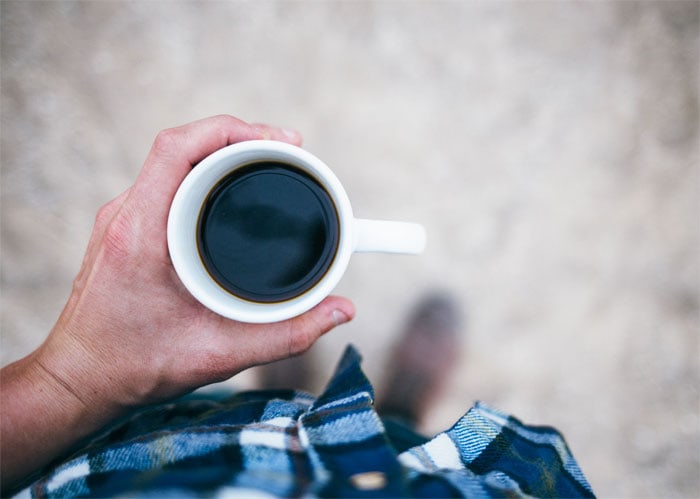
Written By: Sejal Dave, RD
Title: Registered Dietitian
Alumni: University of Florida
Last Updated on:

If you’re like most people your typical morning consists of a quick glance at the weather, a rushed shower and a jolt of java. Many morning routines include caffeine. Caffeine gets the day started – so much so that some of us feel lost if we skip our morning cup of coffee. Perhaps you prefer something besides coffee – like tea, soda, or even an energy drink that has caffeine in it. The question is: if you have diabetes, does the caffeine in these drinks jeopardize your blood sugar?
Table of Contents
A study in published in Diabetes Care in October 2007 found that people with type 2 diabetes who drank coffee on a regular basis experienced elevated blood sugar levels. Average daily blood sugars and after-dinner-meal sugars were found to be higher when the participants had caffeine (an amount equal to 4 cups of coffee) vs. a placebo. How can this be?

Researchers think that caffeine might prevent glucose from moving properly through the body, leading to higher amounts of sugar (glucose) in the bloodstream. This doesn’t necessarily mean that people with diabetes have to give up caffeinated beverages. But it definitely means that you need to take a look at what’s in your drinks.
In general, the maximum recommended amount of caffeine intake per day is about 300 mg. At this time there is no specific amount of caffeine that’s recommended for people with diabetes.
Caffeine is most commonly found in drinks and beverages, but it’s also found in chocolate and in some over-the-counter medications (like Excedrin). The table below lists some popular beverages and the amount of caffeine they contain.
Source: Center for Science in the Public Interest (Sep. 2007)
When managing your diabetes, it’s important to look at every aspect of your health plan. This includes your diet, exercise routine, medication intake, and stress management. If you feel like you’re having a difficult time keeping your blood sugars in check, take a closer look at what you drink. It’s important to note that some diet beverages have more caffeine in them than their original counterparts.
Moderation is always wise – one cup of coffee may get your sleepy eyes open just as well as three cups, and have the added bonus of allowing you to keep your blood sugar under control.
Alumni: University of Florida – Sejal is a registered dietitian, a certified diabetes educator and she holds a masters degree in nutrition and health. Sejal was the project coordinator for the Veteran’s Administrations (VA) national weight loss program and previously worked for the VA hospital in Tampa, FL as a Spinal Cord Injury dietitian.
Sejal has had numerous clinical and community education experiences, including pediatric and intensive care nutrition support. She has also had the opportunity to teach nutrition courses at the community college level to students interested in pursuing health professions. One of her favorite areas of education is diabetes management.
blood sugar, caffeine, coffee, diabetes, diabetes diet, soda, sugar, tea